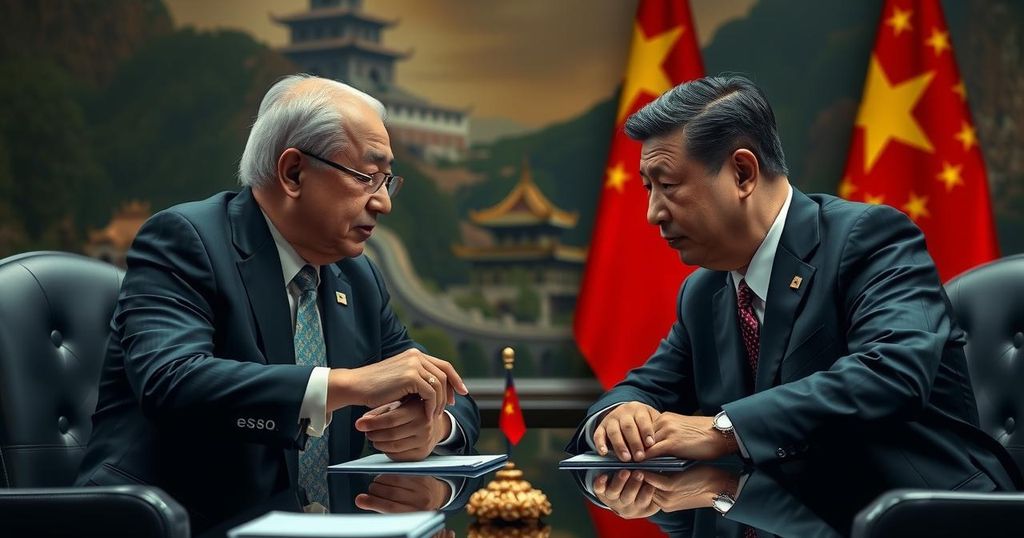President Joe Biden is scheduled to meet with China’s Xi Jinping at the Asia-Pacific Economic Cooperation summit to discuss concerns regarding North Korea’s support for Russia amid the Ukraine conflict. This meeting will address the need for China to rein in North Korea’s military actions, impact future U.S.-China relations, and encompasses broader issues such as human rights and Taiwan tensions as Biden prepares to handover to President-elect Trump.
During the upcoming Asia-Pacific Economic Cooperation summit in Lima, Peru, President Joe Biden is set to hold his final discussions with Chinese President Xi Jinping. Biden intends to press Xi to discourage North Korea from enhancing its military support for Russia amidst the ongoing war in Ukraine. This meeting comes at a pivotal time, as Biden prepares to transition to the Trump administration in January, marking a significant moment in U.S.-China relations driven by the urgency of North Korea’s actions and regional stability.
In the days leading up to this engagement, Biden has collaborated closely with South Korean President Yoon Seok Yul and Japanese Prime Minister Shigeru Ishiba to address concerns regarding North Korea’s military maneuvers and its cooperation with Russia. The leaders firmly condemned North Korea’s recent troop deployments to aid Russian forces and underscored that China, as North Korea’s primary trading partner, has a crucial role to play in mitigating these tensions. There is a consensus among the U.S., Japan, and South Korea that Beijing should prioritize stabilizing the region.
Moreover, the conversation will extend beyond the North Korean issue, encompassing China’s indirect support for Russia, human rights, and tensions surrounding Taiwan. With the looming possibility of a more aggressive U.S. foreign policy under President-elect Trump, the nature of U.S.-China dynamics may shift, necessitating a reevaluation of bilateral relations and economic ties. Recent actions such as the FBI’s revelation of Chinese cyber espionage attempts add complexity to the ongoing discussions.
As the leaders convene, they will reflect on their long-standing relationship, first forged when both were vice presidents. Despite prior attempts to build mutual understanding, recent years have been marred by tensions over espionage, military confrontations, and trade disputes. The outcome of this series of discussions could significantly influence the future trajectory of international relations in this critical geopolitical landscape.
The context of this meeting stems from escalating tensions between North Korea, China, and the West, particularly relating to North Korea’s increasing military engagements and its collaboration with Russia, notably during the ongoing crisis in Ukraine. President Biden’s administration has sought cooperation from China to mitigate threats posed by North Korea, emphasizing regional stability as a significant objective. The historical backdrop includes the concerns surrounding China’s military assertiveness in the Asia-Pacific region and ongoing issues related to human rights and economic competition.
In conclusion, President Biden’s forthcoming discussions with President Xi Jinping represent a crucial juncture in addressing North Korea’s military alliances and broader geopolitical challenges. With an impending transition in U.S. leadership, the outcomes of these talks will likely define future U.S.-China relations and regional stability in the face of rising tensions. The importance of cooperative engagement in mitigating threats from North Korea cannot be understated, as both nations navigate a complex international landscape characterized by competition and strategic interests.
Original Source: apnews.com






